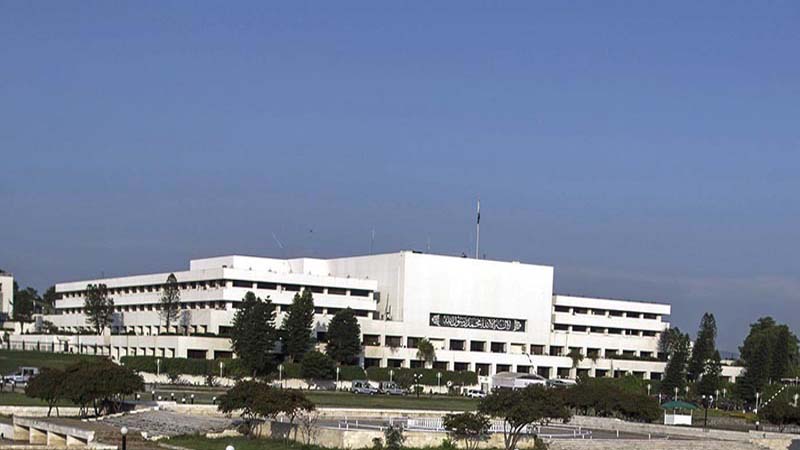 The Upper House of Parliament on Monday passed the ‘Compulsory Teaching of Arabic Language Bill, 2020’ aimed at making teaching of Arabic compulsory for the students of all educational institutions in Islamabad Capital Territory (ICT) amid reservations of the Pakistan People’s Party (PPP).
The Upper House of Parliament on Monday passed the ‘Compulsory Teaching of Arabic Language Bill, 2020’ aimed at making teaching of Arabic compulsory for the students of all educational institutions in Islamabad Capital Territory (ICT) amid reservations of the Pakistan People’s Party (PPP).
PML-N leader Javed Abbassi presented the bill, which was supported by the government and the opposition, but the PPP senators presented some of their observations. Soon after the tabling of the bill, Mian Raza Rabbani said it was not the matter of religion and Islam. Through such tactics he said efforts were being made to impose Arabic culture on us while Pakistan has its own culture of Indus Valley. According to the constitution, the provinces can legislate for the promotion of regional languages along with national language. But how a foreign language can be made compulsory instead of promotion of regional languages, he questioned. Arabic an optional subject already exist then what is the need to make it compulsory.
According to the statement of objects and reasons of the bill, besides having religious importance for the Muslims, Arabic is among the five largest spoken languages of the world. A large number of population from around the world seeks to do business and employment in the rich Arab states. Thus knowledge of Arabic language will not only enlighten the understanding of Islam and the message of Holy Quran, it will also broaden the employment and business opportunities for the citizen of the Pakistan as well.
The bill will help the students to understand the divine message enshrined in the Holy Quran and also Hadith of the Holy Prophet (Peace Be Upon Him) besides widening their employment and business opportunities in the future.
Terming the bill best one, Minister of State for Parliamentary Affairs Ali Muhammad Khan said we categorically supported the bill. He said this step should be taken 70 years ago.
Javed Abbasi said Arabic was included in top five languages spoken in the world. Arabic was also an official language of 25 countries, he added. He said Arabic should be taught as compulsory language in all education institutions and it would also help address many issues confronted to us.
Senators Mushtaq Ahmed, Maulana Ghafoor Haideri, Sirajul Haq and others also appreciated Javed Abbasi for bringing the bill in the house and supported the bill.
Five bills were introduced in the Senate on Monday: “The Code of Criminal Procedure (Amendment) Bill, 2021”, “The Pakistan Panel Code (Amendment) Bill, 2021”, “The Children (Pledging of Labour) (Amendment) Bill, 2021”, “The Civil Servants (Amendment) Bill, 2020″ and The Service Tribunals (Amendment) Bill, 2021”. The chair referred the bills to the standing committees concerned.
Responding over a motion, Minister of State Climate Change Zartaj Gul said the government was taking concrete measures to deal with the problem of climate change under its green agenda. She said National Electrical Vehicles policy has been passed by the cabinet and now we are working on its implementation. She said we are working on a plan to ensure that by 2030 at least 30 per cent of the vehicles used in the country are on electricity. The minister of state said our aim is to increase the share of renewables in power mix to 30 per cent by 2025. She said we hope to bring the share of clean energy in its electricity mix to 65 per cent by 2030.
She invited opposition senators to come forward and present affective measures to further improve climate situation in the country.